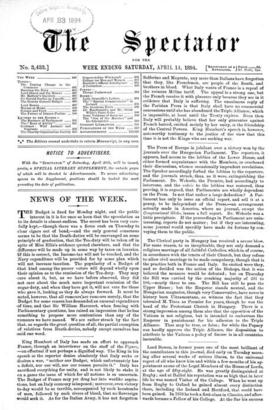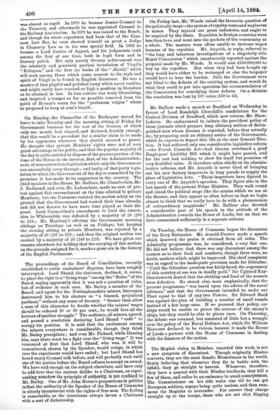Lord Bowen, in former years one of the most brilliant
of the contributors to this journal, died early on Tuesday morn- ing after several weeks of serious illness, to the universal regret of all who knew him and within a few months of his ap- pointment as one of the Legal Members of the House of Lords, at the age of fifty-eight. He was greatly distinguished at Rugby; and at Balliol his reputation was so high that in later life he was named Visitor of the College. When he went up from Rugby to Oxford he gained almost every distinction there, including the Ireland and Hertford, that could have been gained. In 1858 he took a first-class in Classics, and after- wards became a Fellow of his College. At the Bar his success
was almost as rapid. In 1870 he became Junior Counsel to the Treasury, and afterwards he was appointed Counsel to the Railway Association. In 1879 he was raised to the Bench, and though his whole experience had been that of the Com- mon Law Bar, he soon showed himself as great a Judge in Chancery Law as in his own special field. In 1882 he became a Lord Justice of Appeal, and his judgments rank among the first of our time, both in legal form and in literary polish. His only purely literary achievement was the scholarly and genuinely poetical translation of Virgil's "Eclogues," and the first six books of the " 2Eneid," which will rank among those which come nearest to the style and spirit of Virgil to be found in English literature. He was a master of that playful and polished irony which never rankles, and might easily have reached as high a position in literature as he attained in law. In him culture was truly liberalising, and inspired a temper as far as possible removed from the spirit of Horace's scorn for the " profanum vulgus " whom he proposed to keep at arm's length.



































 Previous page
Previous page